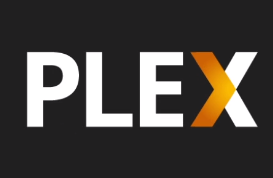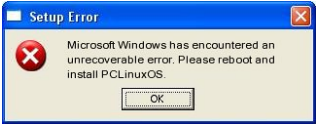| Previous
Page |
PCLinuxOS
Magazine |
PCLinuxOS |
Article List |
Disclaimer |
Next Page |
Short Topix: Plex Comes Under Fire From Pro-Copyright Group |
|
by Paul Arnote (parnote) Cure For The Common Cold? Amazon Is Secretly Working On One.  It might seem odd talking about someone attempting to find a cure for the common cold when we're in the midst of a global pandemic from the coronavirus SARS-CoV-2, but such efforts are underway. According to a report on CNBC, Amazon is doing just that through its top secret "skunkworks" program Grand Challenge, which aims to conquer big problems by finding solutions that have a big impact on humanity. The program isn't publicly acknowledged by Amazon, and works under the cover of Amazon's AWS division. The specific project, called "Project Gesundheit," is Amazon's top secret project to tackle the common cold. In just the U.S. alone, the common cold is reported (in a 17 year old study, nonetheless) to cost just the U.S. economy $40 billion every year due to physician visits and lost productivity. By 2020, the cost is likely higher. The small team of scientists is hoping to be able to come up with a vaccine, while exploring multiple approaches to the problem of the common cold. The real problem is that the "cure" can have almost NO side effects, since most people are over most colds within one to two weeks. About 75 percent of colds are caused by rhinovirus, of which there are 160 known types. Plus, rhinoviruses are very adaptable, mutating exceptionally fast to thwart new treatments or vaccines. This makes the job of finding a vaccine or effective treatment even more difficult. Amazon isn't the only ones looking for a cure to the common cold, either. Researchers from Stanford and the University of California are exploring a different approach that involves temporarily switching off an intracellular protein that the cold virus(es) need to replicate. The Sanford/U of C effort is joined by the Chan Zuckerberg Biohub, funded by Facebook founder Mark Zuckerberg and his physician wife, Priscilla Chan. The researchers say they are very close to a possible cure utilizing this method. He Rode His Bike Past A Burglarized House. Google's GPS Tracking Made Him A Suspect.  Imagine you're riding your bicycle back and forth to and from work. You enjoy riding your bike, and you install an app on your mobile device to track how many miles you ride. Then, you get an email from Google that your GPS tracking information has been requested by a local law enforcement agency. The email says that you have seven days to get a court order to block the transfer of the information, or the information would be turned over to the local law enforcement agency. That is exactly what happened to one Gainesville, Florida restaurant worker, according to a NBC News report. Thus started his nightmare. Like many Android users, he used a number of Google services, and had his Google account linked to his phone. A bit unnerved and scared after receiving the email from Google's legal investigations support team, he went to St. Augustine, Florida to talk with his parents. He was afraid to go to the police, afraid he'd be arrested on the spot. They discussed it over dinner, and they agreed to dip into their meager savings to help him hire an attorney to get a court order to block the transfer of information. The Gainesville police department had used a "geofence" warrant, which basically sucks up all of your data like a Hoover vacuum on steroids. A geofence warrant is a police surveillance tool that casts a virtual dragnet over crime scenes, sweeping up Google location data -- drawn from users' GPS, Bluetooth, Wi-Fi and cellular connections -- from everyone nearby. The only "clue" was that the email from Google contained a case number. The attorney searched for the case number on the Gainesville police department's website, and discovered that it was a one page burglary report from 10 months ago for some elderly lady's house. Upon further examination of the data, he was able to determine that his client had passed by the elderly lady's home three times within the timeframe of a burglary ... all while he pedaled around the neighborhood on his bike. The geofence warrants are used by police departments to help them solve crimes when they have no leads. But the problem with them is that they scoop up the data of EVERYONE who was around that area, even when they had nothing to do with the crime being investigated. This often occurs without the users even being aware. Even Google, who has a horrific track record in privacy matters, has described the practice as a significant intrusion on privacy. After spending several thousand dollars on an attorney to insure his innocence, the victim in this case ... the guy innocently riding his bike ... finally cleared his name.
Plex Comes Under Fire From Pro-Copyright Group  Plex has become the latest neutral technology to get slammed for not doing enough to prevent movie and TV show piracy. According to pro-copyright lobby group CreativeFuture, which represents more than 560 companies and organizations, Plex - like Kodi - is a "dangerous digital media player" that has joined the ranks of "internet heavyweights who refuse to take responsibility for the criminal behavior on their platforms." In days gone by, living rooms around the world could be found stacked with video cassette tapes full of films and TV shows. Some bought, others recorded at home, these copies would need to be waded through, to find whatever content the owner fancied watching that day. With the rise of digital technology, however, such physical collections have largely disappeared, replaced by copies that occupy virtually zero space, with thousands of movies, TV shows, music tracks, and photographs effortlessly stored on relatively cheap hard drives. Paper-based indexing systems, for those who cared to maintain them in the analog age, have now been replaced by software that not only does all the hard work but also makes collections a thing of beauty. While there are alternatives, Emby for example, the clear market leader is Plex. However, the company behind the software is now facing a backlash for failing to control how people interact with its creation. According to CreativeFuture, a pro-copyright coalition of more than 560 companies and organizations, Plex -- which is basically a pretty media player -- is helping to fan the flames of piracy. While there are some exceptions which we'll come to shortly, people generally need to be in physical possession of movies or TV shows to watch them using Plex, with torrents providing the necessary material. "[T]he problem now finds itself on a dangerous precipice where it could easily slip right back into becoming a crisis again, as it was in the mid-2000s -- before streaming was all the rage," Creative Future writes. "Thanks to a rapidly growing media application called Plex, torrent-based piracy is back in vogue, and better than ever (for criminals who have no problem with profiting from content that doesn't belong to them, that is)." To set the scene, that Plex is some kind of ‘rogue' application, CreativeFuture (CF) aligns the media player with another piece of software, one that has also suffered reputational damage as a result of its users' activities. The choice of adjective to describe both is particularly interesting. "To understand what Plex is and how it functions, it is helpful to look at Kodi -- another dangerous digital media player that we have written about repeatedly here at CreativeFuture," CF notes. The claim that Plex is dangerous is supported by an article published in The Verge, which reported on so-called 'Plex shares'. Without going into the minutiae, 'shares' effectively allow Plex users to access content on other users' Plex servers which, in some cases, could have been obtained illegally. That some Plex users allow others to access huge libraries of pirated content is a fact, with some being targeted by anti-piracy groups such as BREIN. But, in common with so many piracy controversies in recent years, CF feels that if Plex users are doing something illegal, then the company behind the Plex software should be held responsible for their actions. In this respect, CF claims that like "most" tech platforms, Plex is doing what it can to avoid accountability. "In turning a blind eye to its piracy problem, Plex has joined the ranks of internet heavyweights who refuse to take responsibility for the criminal behavior on their platforms," the copyright coalition notes. "With heightened scrutiny on the biggest platforms, lawmakers across the country, and abroad, have increasingly demonstrated less tolerance for tech companies that sidestep law and order in their relentless quest for user growth." Quite what CF believes Plex should do isn't covered. If we take current industry strategies as a benchmark, we might guess that the organization would encourage the use of some kind of pro-active filtering mechanism, which would prevent Plex users from adding potentially infringing material to their own computers. Of course, that would mean massive implications for end-user privacy, almost impossible calculations to determine who is allowed to add content to a library within the law in multiple jurisdictions, plus an inevitable backlash and migration to other platforms that reject such intrusions. It would also require the company behind Plex to get deeply involved and therefore acquire ‘knowledge' of infringing user behavior, something that raises all kinds of red flags. The piece, which deserves to be read in its own right, also accuses Reddit of being a "notorious piracy-enabling outlet". What it fails to mention, and probably should've done, however, is that Plex is already making progress with various entertainment industry groups to tackle piracy in the best way possible -- providing users with easy access to licensed content. In 2019, Plex announced it would begin streaming thousands of free movies, TV shows and music documentaries from within the app, after striking deals with relevant rightsholders. The content is ad-supported and the hope is to expand the offering in the future. "Over time, we'll be adding more stuff from different studios and creators-- from Oscar-winning Hollywood movies to the latest from India, Russia, China, Japan, Africa, Latin America, Australia, New Zealand, and Europe to really cool independent movies fresh off the festival circuit," the company said. That Plex now finds itself in the firing line isn't really a surprise -- if Reddit is a "notorious" enabler of piracy, then any company with end users could find itself tarred with the same brush. TorrentFreak contacted the software developer for its opinion on the latest set of claims but at the time of publication, Plex chose to remain silent. Linux Floppy Disk Driver Gets Improvements For 5.7 Kernel  When was the last time you used a floppy disk? Yeah, that's what I thought. When was the last time you could even buy a floppy disk? Yep. Same thing. As much as many think that it's time for floppy disk support to be stripped from the Linux kernel, it's instead getting a breath of new life, sort of. Several months ago, Linus was considering removing floppy disk code from the mainline Linux kernel. After all, who in the world used it any more? At the same time, he challenged kernel contributors to update the floppy drive support. Well, someone answered the challenge. The new floppy disk support is supposed to roll out with the Linux 5.7 kernel. This isn't a few minor patches, either. According to an article on Phoronix, the code for Linux's floppy disk code has seen 586 new lines of code, and 613 deletions. So, if during this period of self-quarantine you're cleaning out a closet and run across a stash of long-forgotten floppy disks, Linux will have your back ... provided you still have the hardware to read them. I have to admit that I have quite a few floppy disks around (and know exactly where they are). I also have a USB-based floppy drive to read them with (which I'm not exactly sure where it's located). Some things are just too difficult to give up, I guess. 27 Free Games From GOG  We're living through some tough and uncertain times right now. With many of us ordered to stay home to help promote social distancing during this global coronavirus pandemic, there are a lot of people who are or will be searching for something to fill up all of that time. Well, GOG (Gallery Of Games) is promoting 27 PC games you can play for free, according to an article on ExtremeTech. They are also free of DRM. Actually, all of these games have been free for a long time. GOG just gathered them all together on one page to make it easier for you to find them, instead of having to search for them through its entire (and extensive) catalog of available games. The collection of free games include some newer games, some old games, and some very old games. The oldest game on the list harkens back to 1979. Here is the list of free games that are available:
So, if gaming is your cup of tea, you're going to be very happy. |







